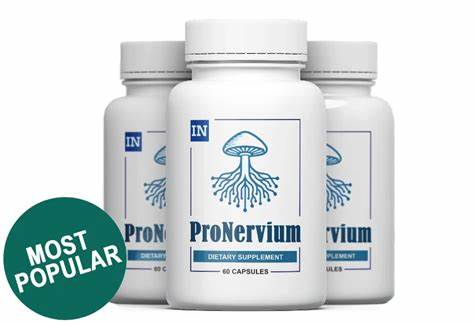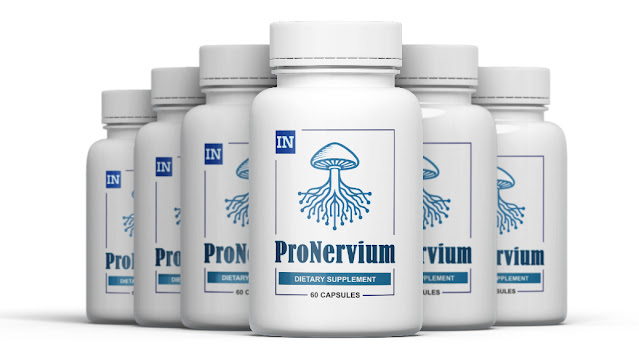Nerve Health: Understanding and Reducing Nerve Discomfort
Nerve Health: Understanding and Reducing Nerve Discomfort
Nerve health is a crucial component of overall well-being. The nervous system, which includes the brain, spinal cord, and peripheral nerves, controls everything from muscle movements to sensory perception and organ function. When nerves are damaged or not functioning properly, it can lead to discomfort, pain, and a range of other symptoms. This article explores the importance of nerve health and provides effective ways to reduce nerve discomfort.
Understanding Nerve Health
The Nervous System
The nervous system is divided into two main parts:
- Central Nervous System (CNS): Consists of the brain and spinal cord.
- Peripheral Nervous System (PNS): Includes all the nerves that branch out from the CNS to the rest of the body.
Types of Nerve Damage
Nerve damage, or neuropathy, can result from various factors, including:
- Diabetes: High blood sugar levels can damage nerves, particularly in the extremities.
- Injury: Physical trauma can harm nerves.
- Infections: Certain infections can lead to nerve damage.
- Autoimmune Diseases: Conditions like multiple sclerosis can attack nerves.
- Nutritional Deficiencies: Lack of essential nutrients like vitamin B12 can affect nerve health.
Symptoms of Nerve Discomfort
Nerve discomfort can manifest in various ways, including:
- Pain: Sharp, burning, or stabbing sensations.
- Numbness: Loss of sensation, often in the hands or feet.
- Tingling: A "pins and needles" feeling.
- Weakness: Muscle weakness or paralysis.
- Sensitivity: Increased sensitivity to touch or temperature.
Ways to Reduce Nerve Discomfort
1. Proper Nutrition
A balanced diet rich in essential nutrients can support nerve health:
- Vitamins: B vitamins, especially B12, B6, and B1, are vital for nerve function.
- Omega-3 Fatty Acids: Found in fish, flaxseed, and walnuts, these fatty acids reduce inflammation and support nerve repair.
- Antioxidants: Vitamins E and C help protect nerves from oxidative damage.
2. Regular Exercise
Exercise improves blood flow, reduces inflammation, and helps maintain overall health:
- Aerobic Exercise: Activities like walking, swimming, or cycling improve circulation and nerve function.
- Strength Training: Building muscle strength can alleviate nerve pain and improve mobility.
- Stretching: Regular stretching helps maintain flexibility and reduce muscle tension that can exacerbate nerve pain.
3. Pain Management Techniques
Various techniques can help manage nerve pain:
- Medications: Over-the-counter pain relievers, prescription medications, and topical treatments can reduce pain.
- Physical Therapy: A physical therapist can design a program to improve strength, flexibility, and mobility.
- Acupuncture: This traditional Chinese medicine technique can help relieve pain and improve nerve function.
- Massage Therapy: Regular massage can reduce muscle tension and improve circulation, alleviating nerve discomfort.
4. Lifestyle Changes
Adopting healthy lifestyle habits can have a significant impact on nerve health:
- Quit Smoking: Smoking constricts blood vessels, reducing blood flow to nerves.
- Limit Alcohol: Excessive alcohol consumption can damage nerves.
- Manage Chronic Conditions: Conditions like diabetes and high blood pressure should be managed effectively to prevent nerve damage.
5. Stress Reduction
Stress can exacerbate nerve pain and discomfort:
- Mindfulness and Meditation: Practices like yoga and meditation can help reduce stress and improve overall well-being.
- Breathing Exercises: Deep breathing exercises can promote relaxation and reduce pain perception.
- Adequate Sleep: Quality sleep is essential for nerve repair and overall health.
6. Herbal and Natural Remedies
Some herbal and natural remedies may help reduce nerve discomfort:
- Capsaicin Cream: Derived from chili peppers, capsaicin cream can reduce pain by depleting substance P, a neurotransmitter that transmits pain signals.
- St. John’s Wort: This herb has been traditionally used to treat nerve pain.
- Essential Oils: Oils like lavender and peppermint have anti-inflammatory properties and can provide pain relief when applied topically.
7. Supplements
Certain supplements can support nerve health and reduce discomfort:
- Alpha-Lipoic Acid: An antioxidant that helps reduce inflammation and improve nerve function.
- Acetyl-L-Carnitine: Supports nerve regeneration and reduces pain.
- Magnesium: Helps with muscle relaxation and nerve function.
When to Seek Medical Attention
While self-care and lifestyle changes can significantly improve nerve health, it's important to seek medical attention if:
- Pain is severe or persistent.
- Symptoms worsen or do not improve with treatment.
- You experience sudden weakness or paralysis.
- There are signs of infection, such as redness, warmth, or swelling.
A healthcare professional can diagnose the underlying cause of nerve discomfort and recommend appropriate treatments.
Conclusion
Maintaining nerve health is essential for overall well-being and quality of life. By understanding the factors that contribute to nerve discomfort and implementing effective strategies to reduce pain, you can take proactive steps to support your nervous system. Proper nutrition, regular exercise, stress management, and healthy lifestyle choices are key components of nerve health. Remember to consult with a healthcare professional for persistent or severe symptoms to ensure you receive the best care possible.
for best results try this good product










Comments
Post a Comment